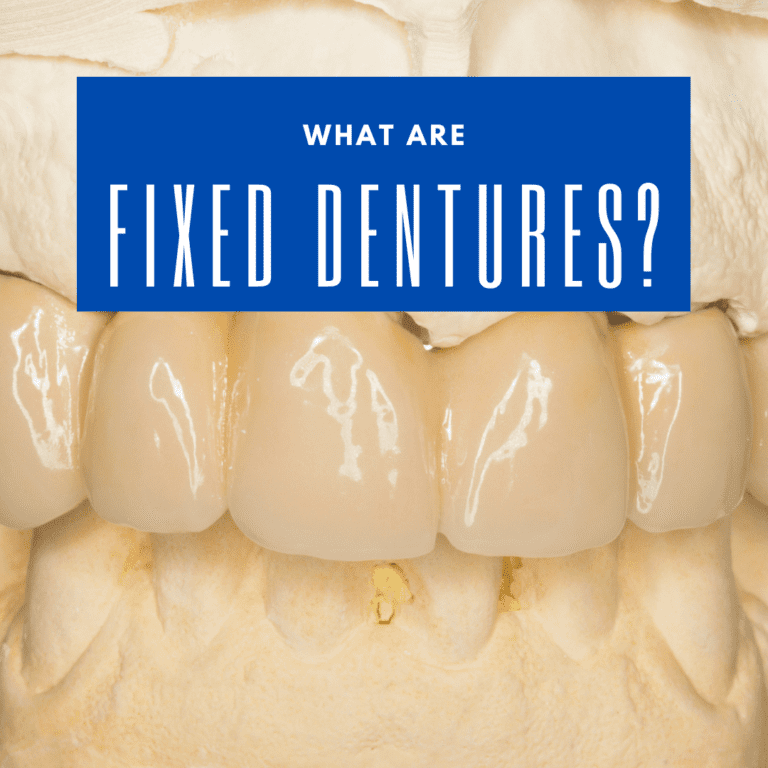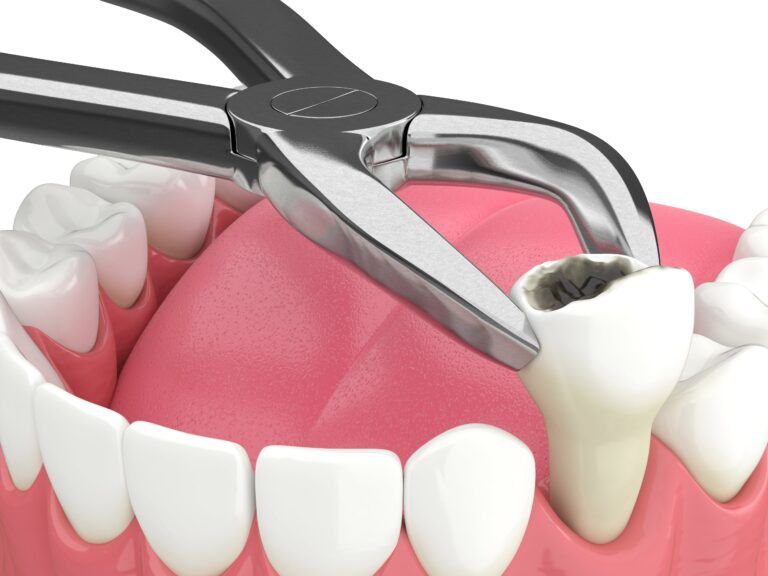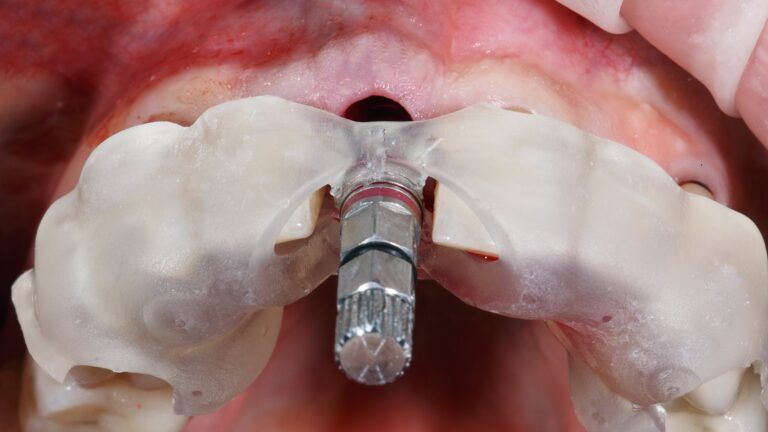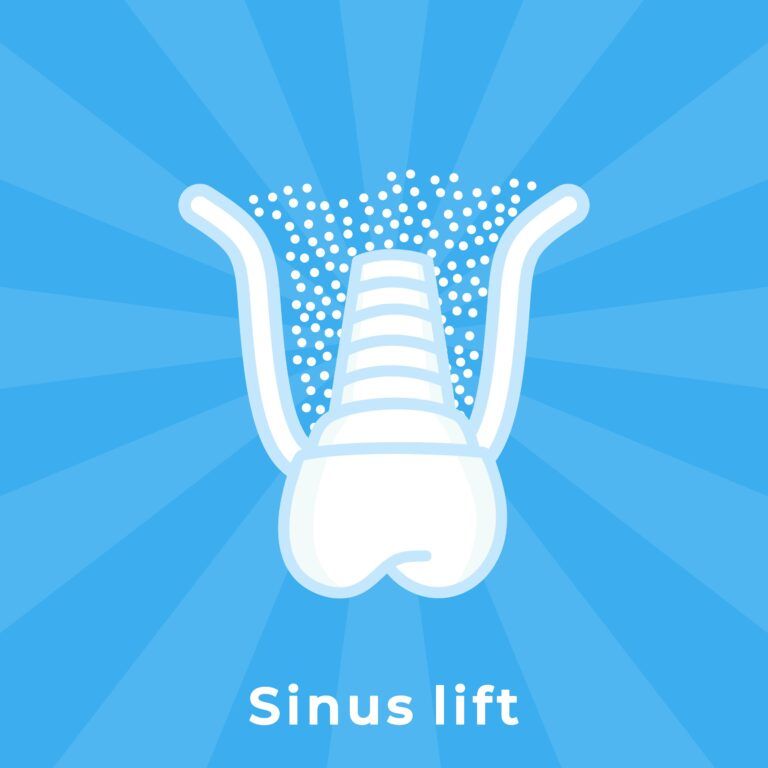According to various studies quoted by the American College of Prosthodontists, approximately 40 million Americans are missing all their permanent teeth. Edentulism, or the condition of being entirely toothless, is a serious problem for older Americans, especially those over the age of 65. This is because edentulism causes a variety of complications including: inadequate nutrition, obesity, diabetes, coronary artery disease, and some forms of cancer.

In order to avoid the complications that accompany complete edentulism, many toothless patients seek out tooth replacement options such as traditional or fixed dentures. Traditional dentures are composed of fake teeth attached to a resin base designed to mimic the appearance of gum tissue. The base of traditional dentures is made to fit over the gums in order to create enough suction to hold themselves in place. In some cases, denture adhesive can also be used.
One of the main problems associated with traditional dentures is the fact that their fit changes over time as a result of jawbone deterioration. This means that traditional dentures start off fitting properly and then slowly become more ill-fitting over time. As a result, many traditional denture wearers experience frequent slipping that makes eating and speaking difficult. Additionally, slipping dentures can also cause excess rubbing on the gums, leading to gum irritation. Because of this, traditional dentures usually need to be relined every two years.

To combat these common issues associated with traditional dentures, your dentist may recommend having a fixed denture placed. Fixed dentures are similar to traditional dentures in their composition, however they have one important exception. While traditional dentures rely on suction and the shape of the jawbone to remain in place, fixed dentures are secured in place using about 4-6 dental implants.
Dental implants are placed in the jawbone, where they will fuse with the surrounding bone. Once fused in place, dental implants are an ideal anchor for supporting a denture. Not only that, but since dental implants are fused with the jawbone, they provide stimulation to the bone necessary for bone mass preservation. Simply stated, this means that the jawbone will not deteriorate over time.
Unlike traditional dentures, fixed dentures will not slip out of place. This allows people with fixed dentures to maintain the ability to eat and speak properly. Furthermore, since the implants provide bone stimulation that preserves the jawbone, this means that the dentures will maintain their proper fit. This, combined with the fact that the dentures are supported by implants and not the gums, means that there will be little to no gum irritation or rubbing.
Although fixed dentures are designed to stay firmly in place while eating or speaking, they are designed to be removed from the mouth at night to prevent damage. For this reason, fixed dentures have attachments that allow them to be both fixed in place and removed. There are two different types of attachments that can be used on fixed dentures. These include:

- Bar-retained: this type of attachment uses clips attached to a thin metal bar that has been molded to the curvature of your jaw. These clips are designed to clip onto the denture base in order to secure the denture in place.
- Ball-retained: this type of attachment uses ball-shaped metal attachments that sit on top of dental implants and a socket on the dentures, allowing the denture to “snap” in place.
When having fixed dentures placed, your dentist will help you determine which type of attachment will work best for you. Overall, these two attachments offer similar outcomes in terms of retention and aesthetics, however there may be cases where your dentist recommends one over the other. To learn more about fixed dentures and whether they are right for you, schedule a consultation with your implant specialist today.

Irfan Atcha, DDS, DICOI, DADIA at New Teeth Chicago Dental in Chicago, Illinois is a board-certified general dentist and a nationally recognized expert in dental implants, cosmetic dentistry, and sedation dentistry. Dr. Atcha is now serving patients in Naples, Bonita Springs and SW FL area with All-on-4 implants, teeth-in-a-day, same day dental implants and the complex zygomatic dental implants for the no-jaw bone solution approach. To schedule a consultation please email Dr. Atcha at teethforyou@gmail.com.





